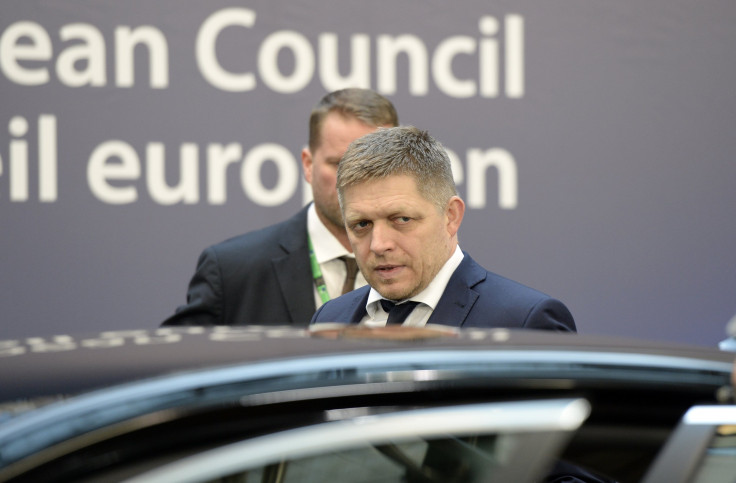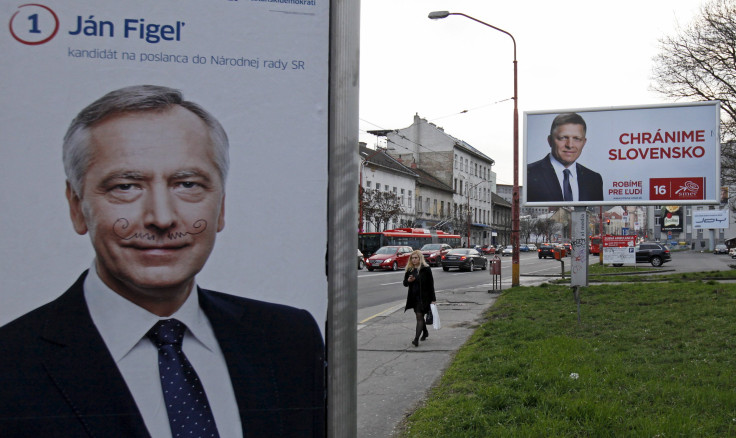Anti-Immigrant Premier Set To Win Third Term In Slovakia Election

Slovaks started voting Saturday, likely to hand a third term to Prime Minister Robert Fico, a left-wing nationalist whose vocal anti-immigration stance chimes with those of Hungary's Viktor Orban and Poland's Jaroslaw Kaczynski.
Opinion polls show Fico's Smer party is set to lose its parliamentary majority after corruption scandals and protests by teachers and nurses about low pay cost it support. But a combination of popular welfare measures such as free train rides for students and pensioners, and his opposition to immigration even by refugees should secure him well over 30 percent of the vote, pollsters say, enough to form a government with a coalition partner.
"The anti-immigration rhetoric combined with a few handouts is enough for Fico to win the election," said Samuel Abraham from the Bratislava International School of Liberal Arts.
With Slovakia due to take over the European Union's rotating presidency for six months from July, giving it a bigger role in EU policy discussions, the election will also be watched closely in Brussels.
Fico, who dismisses multi-culturalism as "a fiction", has pledged never to accept EU quotas on relocating refugees who have flooded into Greece and Italy from Syria and beyond, and has launched a legal challenge to the plan. Most opposition parties agree with Fico's views that Muslims cannot integrate into predominantly Catholic Slovakia and pose a security threat, although they use less aggressive language.
Fico has had poor relations with an often-critical Slovak press and opposes EU sanctions on Russia, but has not sought constitutional changes of the kind that have been called undemocratic by government critics in Poland and Hungary.
He is, however, credited with solid economic management — Slovakia is one of the eurozone's most financially sound countries and remains popular with foreign investors, particularly car makers.

But unemployment of more than 10 percent and vast regional differences in wealth, as well as low healthcare and education standards, have disappointed many voters. Opponents portray Fico as a populist who ignores the need to reform schooling and healthcare, seen by critics as inefficient and corrupt.
A surprisingly strong showing by centre-right parties such as Yale-educated lawyer Radoslav Prochazkaled's Siet (Net) could still give them a chance to form an anti-Fico coalition that might tone down the anti-immigration rhetoric. But any deal may include the libertarian SaS party whose refusal to provide guarantees for a bailout of Greece brought down the previous centre-right government in 2012.
Polls will close at 10 p.m. (4:00 p.m. EST). Exit polls are expected to be published immediately after voting ends but counting will run into the night.
© Copyright Thomson Reuters 2024. All rights reserved.




















